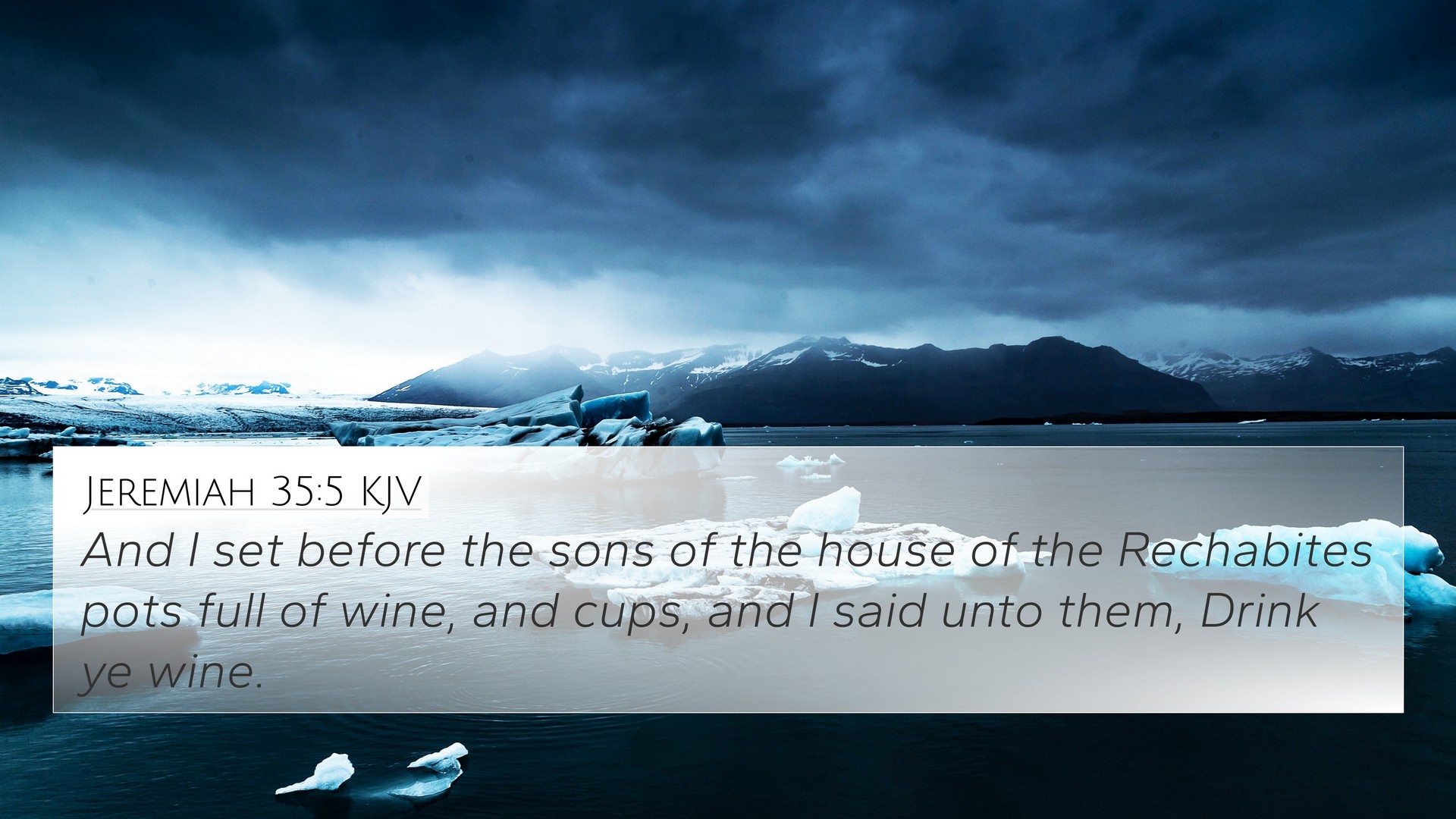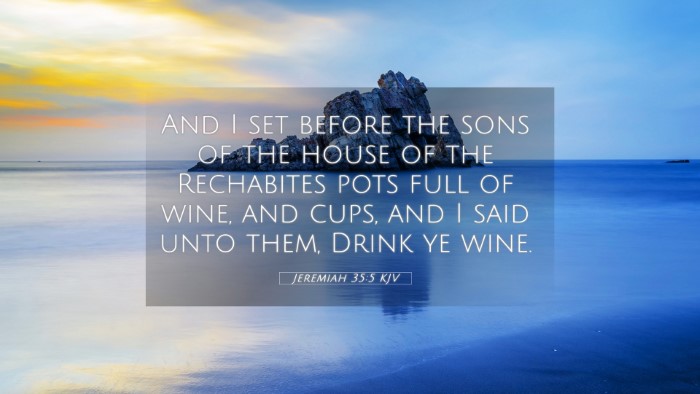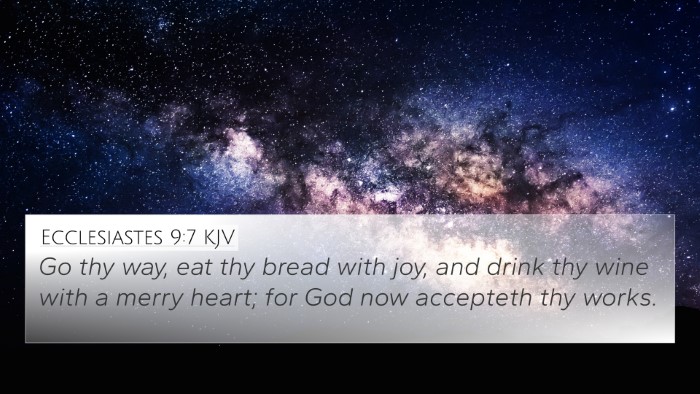Understanding Jeremiah 35:5
Jeremiah 35:5 states:
"And I set before the sons of the house of the Rechabites pots full of wine, and cups: and I said unto them, Drink ye wine."
Context of the Verse
This verse takes place within a larger narrative where God instructs Jeremiah to test the Rechabites' adherence to their abstinent lifestyle. The Rechabites were a nomadic group known for their strict adherence to their ancestor Jonadab's commands, which included avoiding wine and living in tents.
Interpretation Insights
- Matthew Henry's Commentary:
Henry emphasizes the importance of obedience to divine commands, illustrated through the Rechabites' refusal to drink wine despite being offered. This act showcases their commitment to their forefather's instructions and implies a deeper lesson on fidelity to one's principles.
- Albert Barnes' Notes:
Barnes suggests that this event serves as a poignant contrast between the Rechabites’ steadfastness and Israel's disobedience to God's commands. It reflects the idea that true faithfulness is measured by an adherence to God's will, contrasting with the indulgent lifestyle of many in Judah.
- Adam Clarke's Commentary:
Clarke highlights the symbolic nature of wine in the Bible, often representing joy and abundance. Yet, here it serves a different purpose; it is a test of allegiance and illustrates the profound commitment of the Rechabites to their vows over worldly pleasures.
Thematic Connections
The verse, while straightforward, opens avenues for deeper thematic exploration:
- Faithfulness: The Rechabites exemplify unwavering faithfulness to their familial vows despite external temptations.
- Obedience to God: The verse mirrors themes of loyalty within the biblical text, portraying a stark contrast to Israel’s rebellion against divine commands.
- Separation from Worldly Pleasures: The Rechabites’ choice to abstain from wine is reminiscent of calls throughout scripture for believers to remain separate from worldly indulgences.
Cross-References
This verse can be connected with various other scripture passages that echo similar themes:
- Proverbs 20:1: "Wine is a mocker, strong drink is raging: and whosoever is deceived thereby is not wise." - Emphasizes the dangers of wine.
- Romans 12:1: "I beseech you therefore, brethren, by the mercies of God, that ye present your bodies a living sacrifice, holy, acceptable unto God." - Calls for a life dedicated to God.
- Matthew 5:13-16: "Ye are the salt of the earth: but if the salt have lost his savour..." - Illustrates the call for believers to maintain their distinctiveness.
- 1 Peter 2:11: "Dearly beloved, I beseech you as strangers and pilgrims, abstain from fleshly lusts, which war against the soul." - Encourages abstention from worldly desires.
- James 4:4: "Ye adulterers and adulteresses, know ye not that the friendship of the world is enmity with God?" - Highlights the conflict between worldly desires and divine loyalty.
- 2 Corinthians 6:17: "Wherefore come out from among them, and be ye separate, saith the Lord..." - Calls for separation from sinful practices.
- Exodus 20:12: "Honor thy father and thy mother..." - The importance of honoring ancestral commands and traditions.
Conclusions and Further Reflections
The narrative in Jeremiah 35:5 encourages readers to examine their own lives in light of biblical standards of fidelity and obedience to God's word. The refusal of the Rechabites to partake in wine serves as a powerful reminder to uphold divine commands and honor the teachings of those who have gone before us. Their commitment is a testament to the strength that lies in adhering to one's principles, calling for believers to seek a life marked by dedication and loyalty to God's commandments, as well as to our own familial and spiritual heritages.






